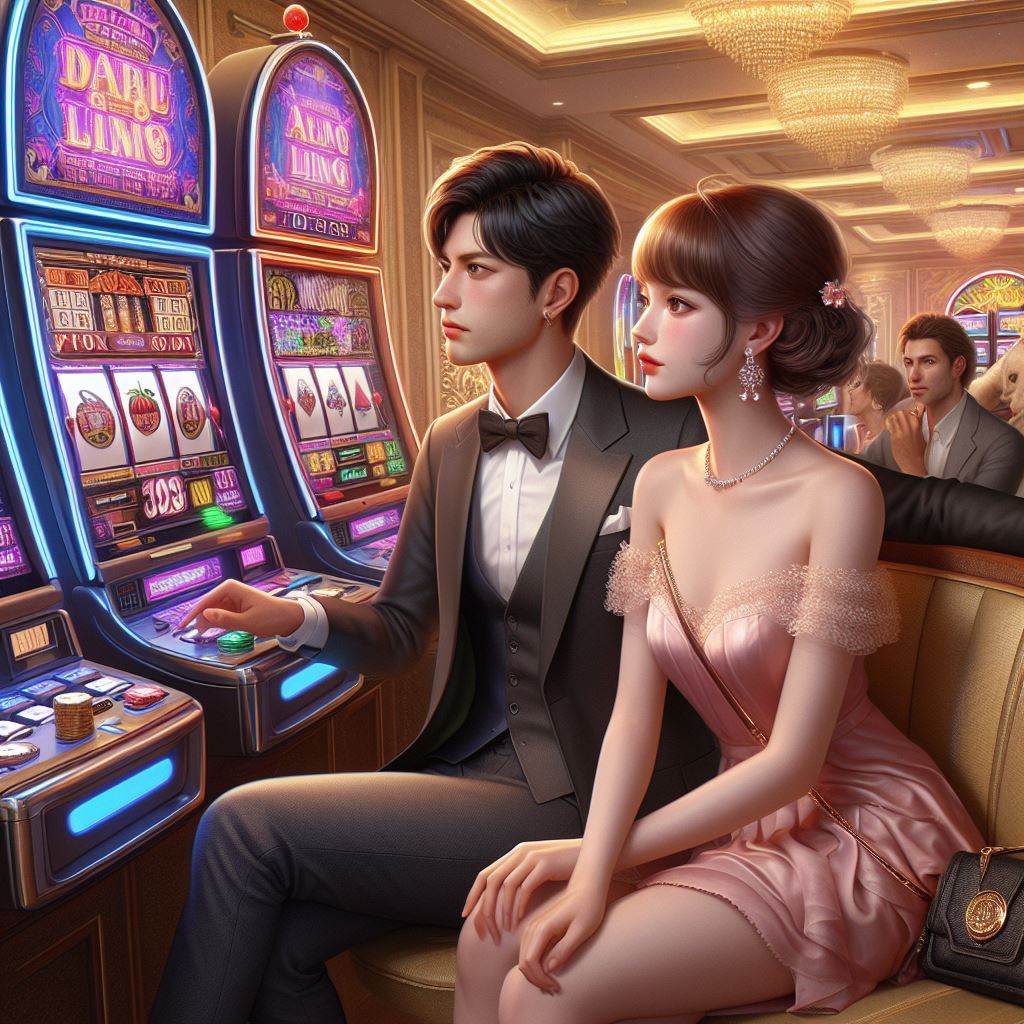Ketika Hiburan Bertemu Keuntungan merupakan judul pada artikel kami hari ini. kami ucapkan selamat datang di steveheimoff.com pembahasan menarik tentang Dalam dunia perjudian daring yang terus berkembang, slot online telah menjadi salah satu hiburan terpopuler bagi jutaan pemain di seluruh dunia. Tidak hanya menawarkan sensasi dan keseruan, tetapi juga potensi keuntungan besar yang dapat mengubah …
Continue reading Ketika Hiburan Bertemu Keuntungan: Cinta Slot Online
Memenangkan Slot dengan Teknik Bermain yang Cerdas
Slot merupakan salah satu permainan kasino paling populer yang menjanjikan kesenangan dan peluang besar untuk mendapatkan kemenangan besar. Namun, banyak pemain sering kali terjebak dalam siklus keberuntungan dan kekalahan tanpa menggunakan strategi yang cerdas. Artikel ini akan menguraikan teknik-teknik bermain yang cerdas untuk membantu Anda Memenangkan Slot dengan Teknik Bermain yang Cerdas. Pilih Mesin dengan …
Continue reading Memenangkan Slot dengan Teknik Bermain yang Cerdas
Mengoptimalkan Pengalaman Slot Online: Langkah Kemenangan
Mengoptimalkan Pengalaman Slot Online merupaka judul pada artikel kami hari ini . kami ucapkan selamat datang di steveheimoff.com pembahasan menarik tentang Slot online telah menjadi salah satu bentuk hiburan kasino yang paling populer di dunia digital. Namun, untuk benar-benar merasakan kesenangan dan meraih kesuksesan dalam permainan ini, dibutuhkan lebih dari sekadar keberuntungan. Berikut adalah langkah-langkah …
Continue reading Mengoptimalkan Pengalaman Slot Online: Langkah Kemenangan
Jejak Sukses Microgaming: Kisah Perjalanan Perjudian
Jejak Sukses Microgaming merupakan judul artikel kami pada hari ini . kami ucapkan selamat datang di steveheimoff.com pembahasan menarik tentang microgaming Sejak pendiriannya pada tahun 1994, Microgaming telah menjadi salah satu penyedia perangkat lunak kasino online terkemuka di dunia. Perusahaan ini tidak hanya memainkan peran penting dalam mengembangkan industri perjudian online, tetapi juga telah membentuk …
Continue reading Jejak Sukses Microgaming: Kisah Perjalanan Perjudian
Rasa Takut Menjadi Kemenangan: Slot Online Punya Solusi
Rasa Takut Menjadi Kemenangan merupakan judul artikel kami pada hari ini. kami ucap kan selamat datang di steveheimoff.com. pandangan menarik yang membahas tentang Rasa takut akan kegagalan sering kali menghalangi banyak orang dari mencoba hal-hal baru, termasuk bermain permainan kasino seperti slot online. Namun, dengan pendekatan yang tepat, slot online bisa berubah dari sumber kecemasan …
Continue reading Rasa Takut Menjadi Kemenangan: Slot Online Punya Solusi
Peran Teknologi Pengalaman Slot:Bermain Slot Online
Peran Teknologi Pengalaman Slot merupakan judul pada artikel kami hari ini. kami ucap kan selamat datang di steveheimoff.com. Pembahasan menarik tentang Era digital telah mengubah banyak aspek kehidupan kita, termasuk cara kita bermain dan menikmati slot. Teknologi modern tidak hanya meningkatkan aksesibilitas permainan ini tetapi juga kualitas pengalaman bermain secara keseluruhan. Artikel ini akan menjelaskan …
Continue reading Peran Teknologi Pengalaman Slot:Bermain Slot Online
Pengendalian Emosi Slot Online: Tujuan Sukses Terbaik
Pengendalian Emosi Slot Online merupaka judul artikel kami pada hari ini. kami ucapkan selamat datang di steveheimoff.com pembahasan menarik tentang Bermain slot online bisa menjadi kegiatan yang mendebarkan dan mengasyikkan, tetapi juga bisa memicu berbagai emosi yang intens. Dari kegembiraan kemenangan hingga kekecewaan dan frustrasi saat mengalami kekalahan, emosi ini dapat mempengaruhi pengambilan keputusan dan …
Continue reading Pengendalian Emosi Slot Online: Tujuan Sukses Terbaik
Mereview Game Microgaming Terbaru Dalam Era Digital
Mereview Game Microgaming Terbaru merupakan judul artikel kemi pada hari ini,. kami ucapkan selamat datang di steveheimoff.com Dalam dunia perjudian online yang terus berkembang, Microgaming selalu menjadi pelopor inovasi dan kreativitas. Sebagai salah satu pengembang software terkemuka, mereka secara konsisten merilis game yang tidak hanya menarik secara visual tetapi juga kaya akan fitur. Artikel ini …
Continue reading Mereview Game Microgaming Terbaru Dalam Era Digital
Panduan Menarik Pejudian Digital: Keahlian dan Pencapaian
Panduan Menarik Pejudian Digital merupakan judul arikel kami pada hari ini . kami ucapkan selamat datang di steveheimoff.com tempat terbaik membahas permaian Dalam era digital yang terus berkembang, pejudian online telah menjadi fenomena yang semakin populer di kalangan pecinta permainan. Bagi mereka yang ingin mengeksplorasi keberuntungan mereka melalui platform digital, pengetahuan dan keterampilan yang tepat …
Continue reading Panduan Menarik Pejudian Digital: Keahlian dan Pencapaian
Cara Aman Perjudian Online: Antara Hiburan dan Risiko
Cara Aman Perjudian Online merupakan judul arikel kami hari ini. kami ucap kan selamat datang di steveheimoff.com yang menbahas tengang dunia yang semakin terkoneksi secara digital, perjudian online telah menjadi bentuk hiburan populer yang menarik jutaan pemain setiap tahun. Namun, seiring dengan popularitasnya, risiko yang terkait dengan perjudian online juga meningkat. Berikut adalah beberapa langkah …
Continue reading Cara Aman Perjudian Online: Antara Hiburan dan Risiko







